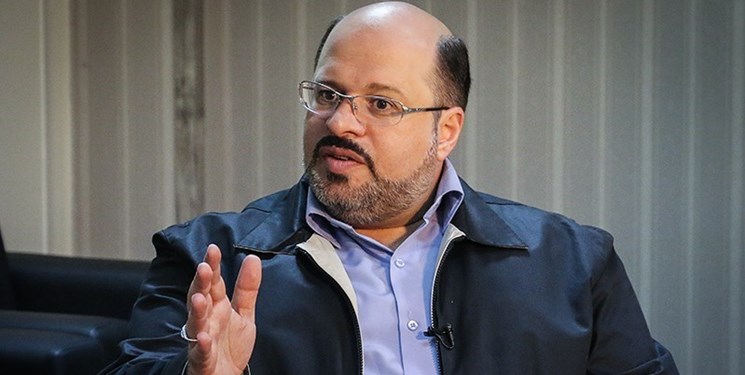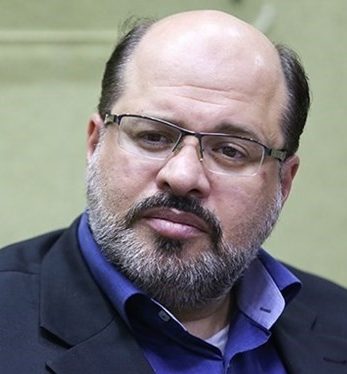Hamas is the same phoenix rising from the ashes, continuing to fight until victory, despite the inevitable casualties in the field that are part and parcel of any war.
By: Khaled Al-Qaddumi, envoy of Hamas in Iran
The nature of October 7 and the ‘Al-Aqsa Flood’ operation remains elusive to many analysts. Hence, their post-flood analyses are trapped in political thoughts and suppositions devoid of substance. To put it differently, any political approach or analysis concerning Palestine and its conflict with the Zionist occupier, proposed or discussed prior to October 7th, falls into the category of clichéd assumptions and discourses that should not form the foundation for commentary or discourse on the political approach and resolution of the dispute.
Generally, the flood ends by a new beginning within a new context. Therefore, it is inevitable that a ‘political Al-Aqsa Flood’ to occur in line with the October 7 earthquake by the resistance forces at both regional and international levels.
However, when it comes to the approaches and analyses of the Zionist side, it must be noted that, based on the available data from the field situation, the occupier is striving to transform the geography of northern Gaza into an uninhabitable region and assert their control over it, thereby replicating the conditions prevalent from 1967 to 2005. This is reminiscent of the actions taken in 2002 in the West Bank under the guise of ‘Operation Defensive Shield’, during which security responsibilities were transferred to the PLO (Palestinian Liberation Organization). However, the PLO was unable to fulfill this mission, leading to the rise of the resistance movement. Consequently, the Palestinian Authority and the PLO lost the requisite self-confidence to perform a security role for the occupiers.
Despite its numerous political titles, the Palestinian Authority failed to secure the trust of the people in providing national security to a reasonable extent. In this context, certain political circles surrounding Ariel Sharon, the then Prime Minister of the Zionist regime, discussed the possibility of delegating this responsibility to renowned families and prominent civil organizations. Those who resurrect such absurdities today perhaps fail to realize that Hamas is the same phoenix rising from the ashes, continuing its fight until victory, despite the inevitable casualties in the field that are part and parcel of any war. Therefore, any solution predicated on the military might of the aggressive Zionist forces is destined to fail.
From the perspective of a Palestinian defender on the ground, it must be stated that neither the solutions of 1967, nor the ‘Prisoners Document’, nor even a heap of literature can find a practical implementation path. This is due, on one hand, to the aggression and bullying of the occupiers and their Western supporters, with the United States at the forefront, and on the other hand, to the contradiction of such a thing with the requirements post the Al-Aqsa Flood. This may lead us Palestinians to reject each other and await the approval of the other party.
As for the Oslo-centric group and the Palestinian Authority based in Ramallah, one should not be distracted by their approaches. This is because they are far removed from the sphere of influence within the nation, let alone possessing the capability to take the initiative in line with the demands of Palestinian public opinion.
What is the path forward now?
No individual possesses a magical solution to erase the aftermath of the human catastrophe wrought by the Zionist war machine. Hearts are heavy with sorrow, and the world stands powerless, unable to offer even a drop of water to the children of Gaza. Consequently, the escalating element of ‘hatred’ renders any notion or mindset of peaceful coexistence unattainable for several generations at least. Therefore, scholars should contemplate a model that is predicated on fresh data and hinges on the following subjects:
Firstly, the conflict against Gaza must be halted forthwith, and the Zionist regime should be held accountable on an international platform and compelled to reconstruct Gaza, without the ability to evade this responsibility.
Secondly, over the course of the century that has elapsed since the Palestinian catastrophe, various nations and international organizations have assumed the role of arbiters of the Palestinian nation’s destiny, never permitting the Palestinians to voice their opinions and exercise their right to self-determination. Hence, one anticipated outcome is that decision-making authority should be vested in the Palestinians themselves, not others.
Thirdly, despite the criminal Zionist regime being a defiant entity against the global system and having perpetrated all manner of war crimes and crimes against humanity, it unfortunately remains a permanent member of the United Nations. At least theoretically, it is expected at this juncture that there should be no basis for interaction with this regime, and we should not observe contradictory behavior toward this regime. Instead, efforts should be made to politically and diplomatically isolate Israel, while concurrently, we should all earnestly strive for the establishment of a Palestinian state.
The ineffective international resolutions have alluded to the existence of an independent nation with Arab governance in 45% of historical Palestine, and later, the Oslo Accords surfaced and discussed the fragmented state of Palestine in an area comprising about 18% of historical Palestine. However, even these initiatives did not succeed. As a result, topics such as the recognition of parties between Palestine and the Zionist entity should not be broached or discussed; because it would be akin to disregarding the history of failures.
The solution and way forward involve empowering the Palestinian nation to establish an independent country with a political system that is centered on upholding the dignity of the Palestinian citizen and ensuring their freedom of movement and the enjoyment of a dignified life akin to other nations of the world.
Of course, this necessitates synergy at the regional and international level, which transcends the governmental and official realm and relies on two robust ‘popular’ and ‘international’ components. These two factors are essential to exert pressure on governments and international institutions to actualize the objective of establishing the Palestinian state. Because public opinion in the Northern Hemisphere has a tangible impact on decision-makers in their countries. Moreover, it appears that the blood of the Palestinian infant is rekindling the spirit of humanity in these societies and can serve as a lever of pressure that will lead to political movements and aid in realizing the long-standing aspiration of the Palestinian nation.
That is why, in the day after the flood, attention should be directed toward a ‘Palestine’ that created the flood to fulfill the hopes and dreams of its people.






